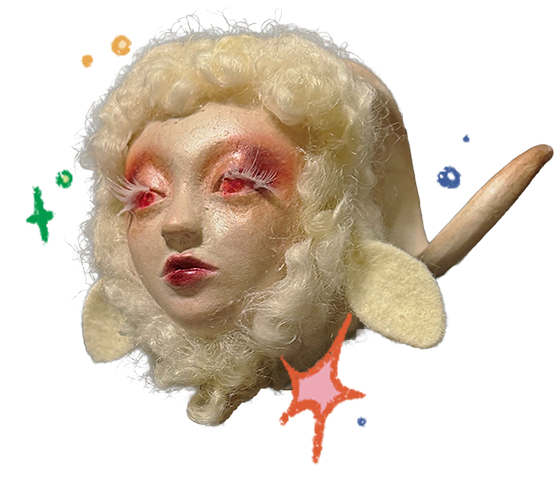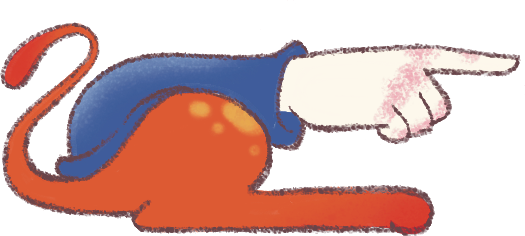Not simple, docile, or misled, these are Arlo’s sheep.
Arlo was raised in a religious and politically conservative household. His consistent exposure to art and language tied to these ideologies profoundly shaped his upbringing and understanding of the world and himself. One recurring image within both contexts is that of the sheep.
In a religious context, the sheep symbolizes a follower of God, dependent on God’s guidance and protection. However, a sheep is also docile and can easily be misled without a “good shepherd.” In right-wing political discourse, this idea is expanded: being labeled a “sheep” becomes an insult implying mindless obedience. It suggests that someone has been misled and is directed toward anyone who disagrees with conservative ideals. The implied “weakness” of being a defenseless and mindless animal is crucial to this image.
In Arlo’s art, he recontextualizes the image of the sheep. They are the primary subjects and represent aspects of his identity and experiences that fall outside the narrow scope of acceptability defined by the religious and political ideologies in which he was raised. These sheep are not mere “followers of God” nor have they been “led astray”; instead, they are followers of their own hearts and intuition. Being true to oneself is a conscious choice that requires great effort and strength, contrasting sharply with the aforementioned definitions of sheep.


